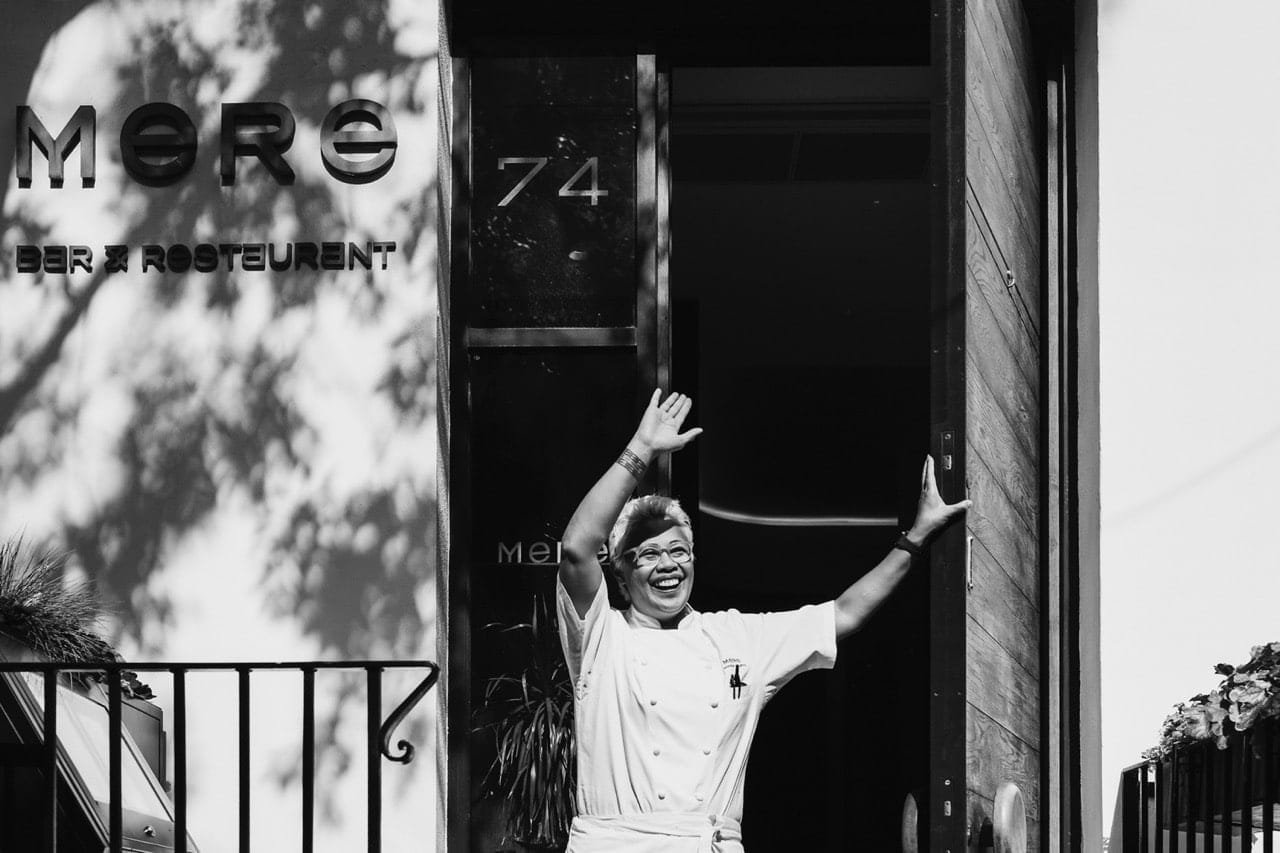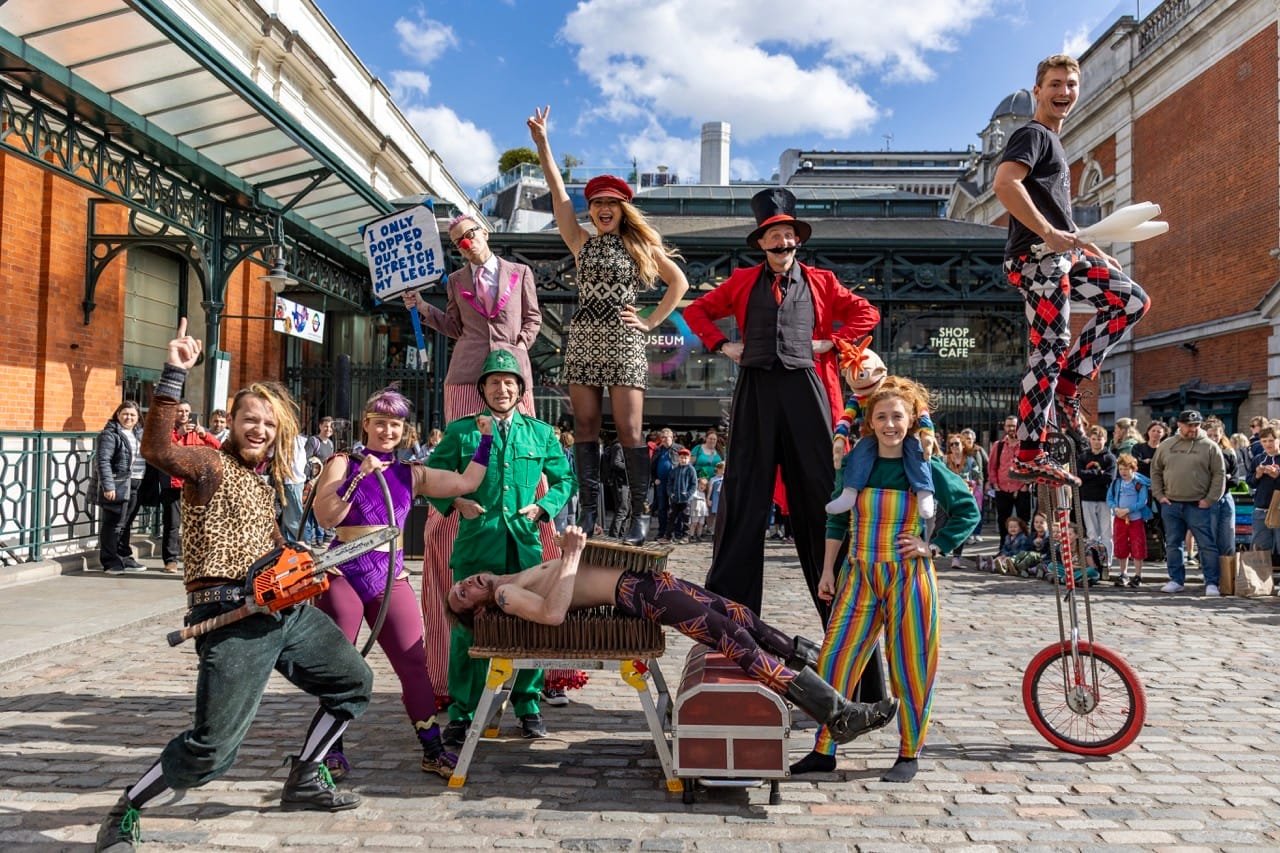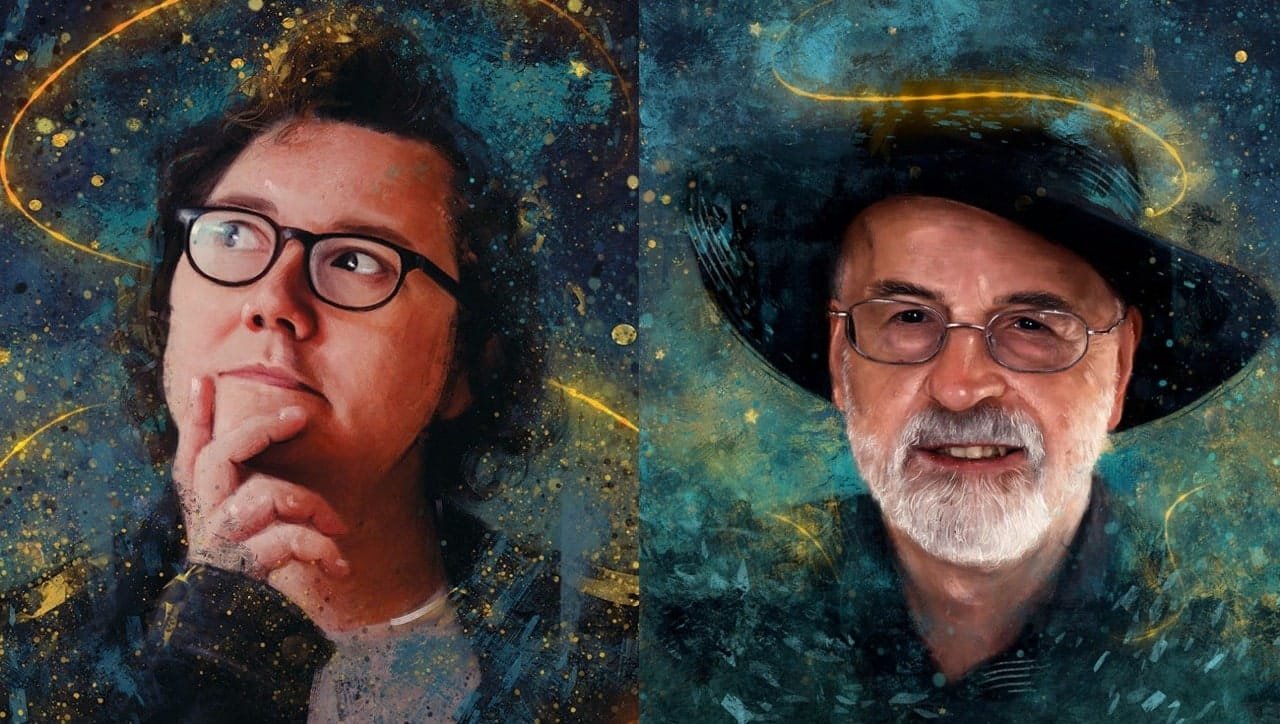Marc Burrows has spent the past two years bringing the life and magic of Sir Terry Pratchett to the stage. Now, on what would have been Pratchett’s 77th birthday, Burrows takes the West End by storm with a special performance at the Duchess Theatre. We caught up with him to talk about the chaos, comedy, and compassion at the heart of The Magic of Terry Pratchett.
What inspired you to turn your biography of Terry Pratchett into a live multimedia show—and how did comedy become part of the magic?
Turning things into one-man shows is just something that I do! I’ve been doing stand-up for sixteen years now, and did my first solo show at the Edinburgh Fringe in 2011. I’m constantly looking for ideas for the next one. Almost everything I ever do is held up for “can this be a Fringe show” inspection. When I was writing the book, I was inevitably writing jokes, partly because it’s part of how I write, but partly because writing about Terry, who wrote such beautiful jokes, it was difficult not to fall into his patterns. Originally, I’d considered doing some sort of talk, just as a promotional thing for the book, but the more I thought about it, the more I felt there was a real show in the story – that I could celebrate Terry in a unique and interesting way. Also, and it sounds a little cynical, I admit, I knew it was a show with a built-in audience. People would want to see it. When you’re taking a show to Edinburgh, that’s half the battle. As for comedy itself – if there’s one thing I’ve learned from reading Pratchett it’s that life and humanity is funny. And it’s also horrible. And it’s also unfair. And it’s also brilliant. And it’s also magical. This was a chance to explore all of that out loud.
You’ve toured this show extensively, from Edinburgh to Adelaide. What makes the West End performance at the Duchess Theatre feel special?
Well, the phrase “London’s West End” does, of course, carry its own weight. There’s something special, unique. Like the Edinburgh Fringe, like Broadway – it’s where theatre thrives. I’ve been performing this show for two years now, if you count the previews and Work In Progress stage … I’ve done it in England, Scotland, Northern Ireland, Wales, the Republic of Ireland, Germany, Australia. I wanted to acknowledge that journey with something that felt like an EVENT. And of course, as a stand up, you want to play the special rooms.
More than any of that, though, I wanted to celebrate Terry. He deserves the West End. This isn’t my show, not really, it’s his. It’s Terry Pratchett that’s doing the West End. I’m just lending him the stage. We’re doing this show on his 77th birthday. I felt that needed marking. And of course “The Duchess” is a suitably Discworld location … it’s the name of the pub at the heart of Terry’s book Monstrous Regiment, one of my favourites.
Terry Pratchett was famously down-to-earth, even as his world-building soared. How do you channel that balance of wit and wisdom in your show?
Therein lies one of the secrets of the show’s success … the show can be witty and down to earth and angry and emotional and philosophical, all at the time same time, because I’m telling the story of Terry Pratchett and he was all of those things. His life carries all of those elements. I just get to be the one that tells you about it.

You’ve got Rhianna Pratchett, Dan Schreiber, and a mystery guest joining you on stage. Without spoiling surprises, what can we expect from Act Two?
In all honesty … I’m not entirely sure. Dan is coming along in the role of host. He’ll be chairing the discussions and asking the questions. I’ve known Dan for almost 20 years, we started out in comedy together, so both of us being up on that stage, in the glittering West End, will feel like a real moment. I’m leaving the actual interviewing to him, and I’ve no idea what he’ll be asking. I dare say it’ll be a deep celebration of Sir Terry, though. Hearing Rhianna’s stories and her perspective is going to be fantastic. And of course, we’ll be taking audience questions. And you never know where that’s going to take you.
Discworld fans are fiercely loyal and wonderfully geeky. How does it feel to perform this show in front of people who really know the lore?
It can be intimidating … they’re a smart bunch, they take Terry very seriously and they’re very protective of him. I know when my book was first announced people were sceptical, because I had no presence in the fandom. No-one had heard of me before. What people realised though, as soon as they read the book, or see the show, or to be honest, speak to me for five minutes, is that I’m every bit as geeky and protective of Sir Terry as they are. I’m pretty damn steeped in the lore myself. If anything, I probably take him too seriously. Actually the real challenge was to not pander to that crowd …the easiest version of this show to write would be one that was aimed entirely at the Discworld superfans, and would be full of niche in-jokes. The challenge for me was that it couldn’t just be that … it had to work for the casual audience, and more than that, it had to work for people who had never picked up a Pratchett book in their life and had come out of either curiosity, which does happen at Edinburgh for example, or because they’ve been dragged along by the wife. Making it work for all three groups was the real challenge. I lost a lot of sleep over it.
Sir Terry’s work was full of satire, heart, and social commentary. What do you think his writing still teaches us in 2025?
The lessons are as sharp as ever, and they’re probably more relevant now than they ever had been before. The central thesis of Terry’s work was “believe people’s story”. The worst thing you can do in a Terry Pratchett book is deny someone their own story, or take it away from them. To treat people as “things”. That’s a very relevant message in 2025. He approached the world with extraordinary compassion and understood that life was nuanced and strange. That people weren’t fundamentally good or band, but fundamentally *people*, as he wrote once. We could benefit from keeping that in mind. That and, as Nanny Ogg says, always getting the young man’s name and address.
Your work spans books, stand-up, punk bands, and journalism. How do these creative outlets feed into each other—or keep you (beautifully) chaotic?
I’ve honestly always felt like it’s the same body of work. The books become stand up shows, the jokes I write on stage end up in an article, the theme of an article can become a song. I’ve always allowed these things to bleed into one another. I end up doing comedy where I sing songs, or music gigs where I crack jokes. I think writing comedy has made me a much sharper prose writer. It is chaotic … beautifully so. But it keeps life interesting. Life is never boring. I’m not sure I’m even capable of being bored. There’s always something buzzing in my head.
If Sir Terry Pratchett were still walking the streets of Shoreditch today, what do you think he’d be scribbling in his notebook?
“Bugger off and leave me alone”. He could then rip the page out and hand it to the first person who tried to ask him to sign up to something.







